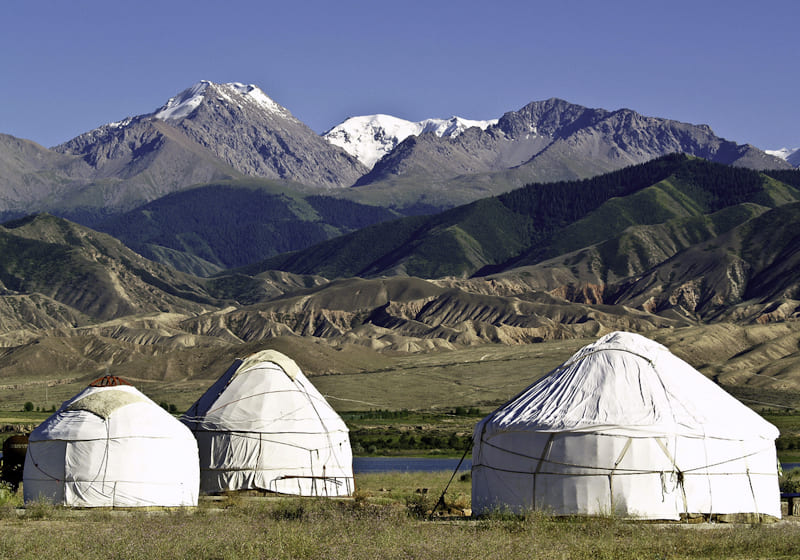Kazakhstan’s Nomadic Traditions Via a Muslim Traveller’s Lens

Should you’re planning a visit and interested by Kazakhstan’s nomadic tradition, you may also be questioning how that ties in with Islam. The quick reply? Fairly deeply. Kazakhstan’s roots return centuries of nomadic life on the steppes, however that tradition isn’t simply yurts and horses. It’s formed all the things from how folks cook dinner and greet friends to how they practise their religion.
This information is for Muslim travellers who need extra than simply pictures of landscapes—they need tales, context, and a deeper look into the Islamic traditions behind Kazakhstan’s nomadic life. Right here’s how one can discover Kazakhstan’s nomadic traditions in a method that’s significant, respectful, and completely unforgettable.
What Makes Kazakh Nomadic Tradition Distinctive?

Earlier than borders and cities, Kazakhs have been nomads—transferring with the seasons, herding animals, and constructing their lives round nature. As we speak, whereas many Kazakhs stay in cities like Almaty and Astana, the nomadic identification remains to be alive of their values, hospitality, and way of life.
1. The Yurt: Extra Than Only a Tent
You’ve most likely seen pictures of yurts (referred to as kiiz ui in Kazakh). They’re spherical, transportable properties made from felt and wooden. However for Muslims in Kazakhstan, the yurt isn’t only a sensible shelter—it’s an emblem of household, custom, and barakah (blessing).
Yurts are all the time arrange with deep cultural intention. The inside displays a hierarchy and concord, with the visitor area on the entrance—emphasising how central hospitality is in Kazakh Muslim tradition. Even at the moment, in case you’re invited into somebody’s yurt (or fashionable residence), you’re handled with nearly sacred care.
Should you’re becoming a member of a Halal Journey Information journey to Kazakhstan, we organise stays and meals with native households the place you’ll not solely see a yurt—you’ll be welcomed into one. You’ll get to eat with them, ask questions, and listen to their tales firsthand.
2. Nomadic Hospitality and Islamic Generosity
The Kazakh saying “Konak keldi – kut keldi” means “A visitor has arrived – blessings have arrived.” This isn’t simply poetic—it’s an actual worldview. In nomadic tradition, not feeding a visitor is taken into account shameful, and this hospitality blends seamlessly with Islamic values of generosity and respect.
As a Muslim traveller in Kazakhstan, you’ll typically be supplied meals or tea with out even asking. You’ll be inspired to take a seat, eat, speak—even when there’s a language barrier. Should you say “I’m Muslim,” it instantly builds belief and connection.
This shared religion bridges the hole and allows you to expertise Kazakhstan’s nomadic traditions by means of a Muslim traveller’s eyes—not simply as an outsider, however as somebody with shared cultural and non secular values.
Spirituality on the Steppe: Islam and Nomad Life

Islam arrived in Central Asia within the eighth century, and regardless of Soviet-era suppression, it remained an essential a part of every day life—particularly in rural and nomadic communities. As we speak, many Kazakhs practise a type of Islam that’s deeply tied to nature, household, and custom.
1. Visiting Sufi Shrines and Sacred Websites
In southern Kazakhstan, particularly in Turkestan, you’ll discover mausoleums and shrines related to Sufi saints and students. The Mausoleum of Khoja Ahmed Yasawi is among the most essential Islamic websites within the area—constructed within the 14th century and nonetheless visited by hundreds every year.
These shrines are a gorgeous instance of how Kazakh Islam blends non secular custom with native historical past. Even nomadic tribes, who didn’t have mounted mosques, handed down tales of saints and students as a part of their oral tradition.
Should you’re into Islamic historical past and wish to join with it in a lived, respiration method, Halal Journey Information consists of stops at key non secular websites in our Kazakhstan itineraries. You received’t simply see the structure—you’ll hear the tales from locals who nonetheless go to these locations at the moment.
2. Conventional Clothes, Modesty and Muslim Identification
Conventional Kazakh clothes for ladies consists of lengthy clothes, typically layered with ornate vests and headscarves—particularly in rural communities. Modesty has all the time been a part of the tradition, even earlier than the return of extra visibly Islamic practices within the post-Soviet period.
Hijab isn’t all the time worn in the identical method as in different Muslim nations, however respectful gown is widespread. Males typically put on skullcaps throughout prayer, and in some areas, Islamic customs round gender interplay are extra preserved.
As a Muslim lady traveller, you’re more likely to be handled with a sort of quiet respect, particularly in case you’re visibly Muslim. That shared identification goes a great distance in opening up conversations, particularly with older generations who see Islamic hospitality as a core worth.
Nomadic Actions That Mirror Muslim Values

Nomadic life in Kazakhstan isn’t only a factor of the previous—it’s nonetheless alive within the countryside, and you may expertise elements of it firsthand. Listed below are a number of actions that not solely join you with Kazakh heritage but additionally tie into Islamic values of group, gratitude, and steadiness with nature.
1. Horseback Driving and Animal Care
Horses are central to Kazakh identification. Nomads thought-about horses as companions and even non secular symbols. Driving a horse throughout the open steppe isn’t nearly tourism—it’s a method of connecting with how Kazakhs lived for hundreds of years.
As Muslims, we’re inspired to deal with animals with kindness and care. Many Kazakh Muslims nonetheless elevate livestock with this precept in thoughts, following Islamic pointers on slaughter, cleanliness, and humane remedy.
On Halal Journey Information journeys, we solely work with moral animal experiences which might be respectful and culturally correct. You’ll be taught how Kazakh Muslims care for his or her animals, and even participate in horseback experiences that really feel grounded, not gimmicky.
2. Conventional Cooking with a Non secular Lens
Nomadic meals isn’t simply survival meals—it’s wealthy with custom. Meals are seen as communal blessings. Many Kazakh Muslims say bismillah earlier than consuming, and the act of cooking for others is taken into account an honour.
If you be a part of a Kazakh cooking class (like those we organize by means of Halal Journey Information), you’re not simply studying recipes—you’re listening to household tales. You’ll be welcomed into somebody’s residence or yurt, proven how you can knead dough, put together meat, and cook dinner over an open hearth. And also you’ll share that meal together with your host household, the identical method Kazakh nomads have finished for generations.
Why Kazakhstan’s Nomadic Tradition Feels So Acquainted to Muslims
Kazakhstan could seem distant, however its values—hospitality, religion, respect for elders, group—really feel surprisingly acquainted to many Muslims. As you progress by means of the nation, you’ll begin to discover small issues that resonate: shared meals, the decision to prayer, the way in which older persons are honoured.
For Muslim travellers, Kazakhstan presents a uncommon probability to see Islam not simply within the mosque, however woven into on a regular basis life, household customs, and cultural rituals that stretch again hundreds of years.
Should you’re on the lookout for greater than only a guidelines of issues to see, if you would like connection and depth, then experiencing Kazakhstan’s nomadic traditions by means of a Muslim lens is one thing you received’t overlook.
Be a part of Halal Journey Information in Kazakhstan and see it for your self. Our journeys are designed to attach you with actual folks and lived traditions—no scripts, no vacationer traps. Simply trustworthy, significant encounters that really feel like residence.







